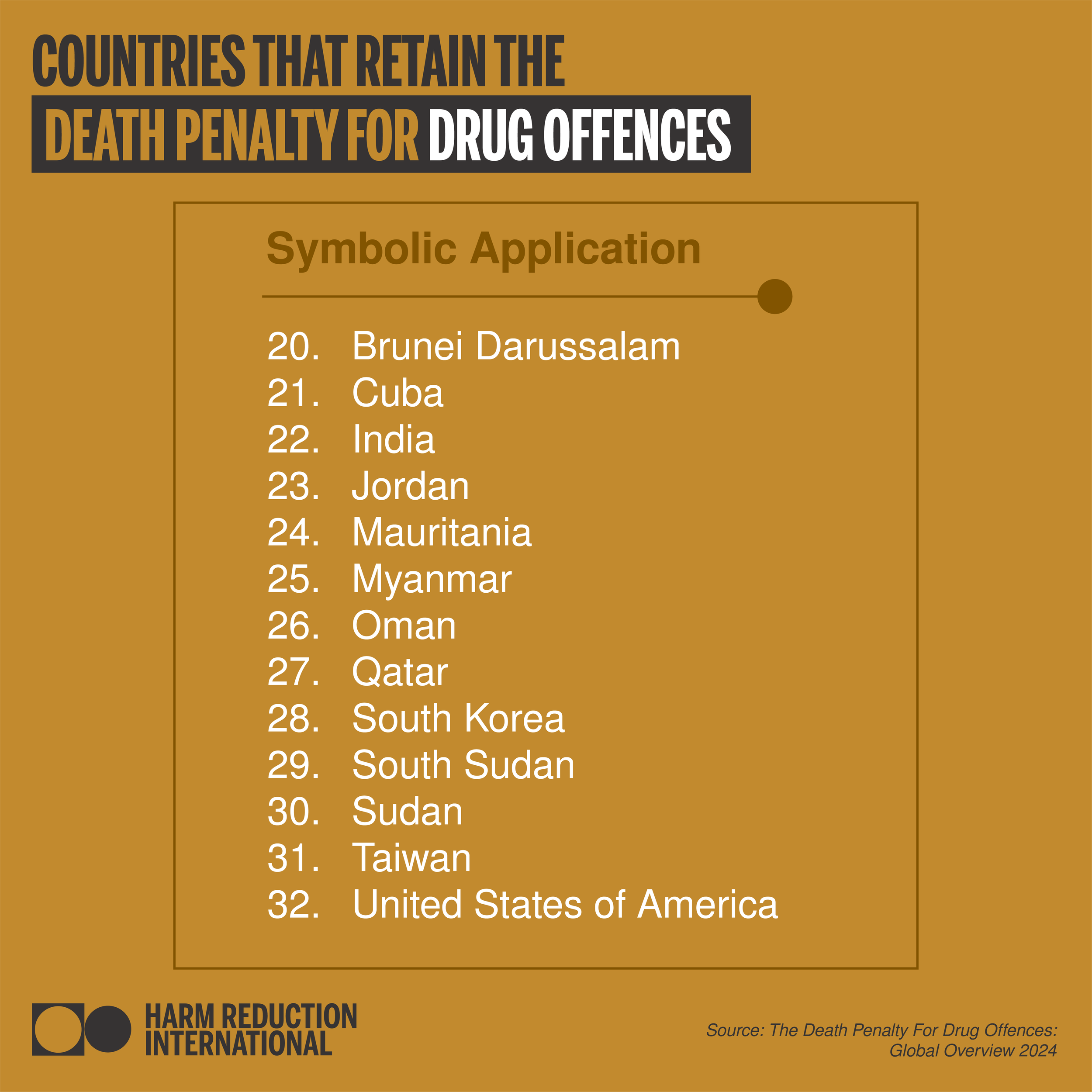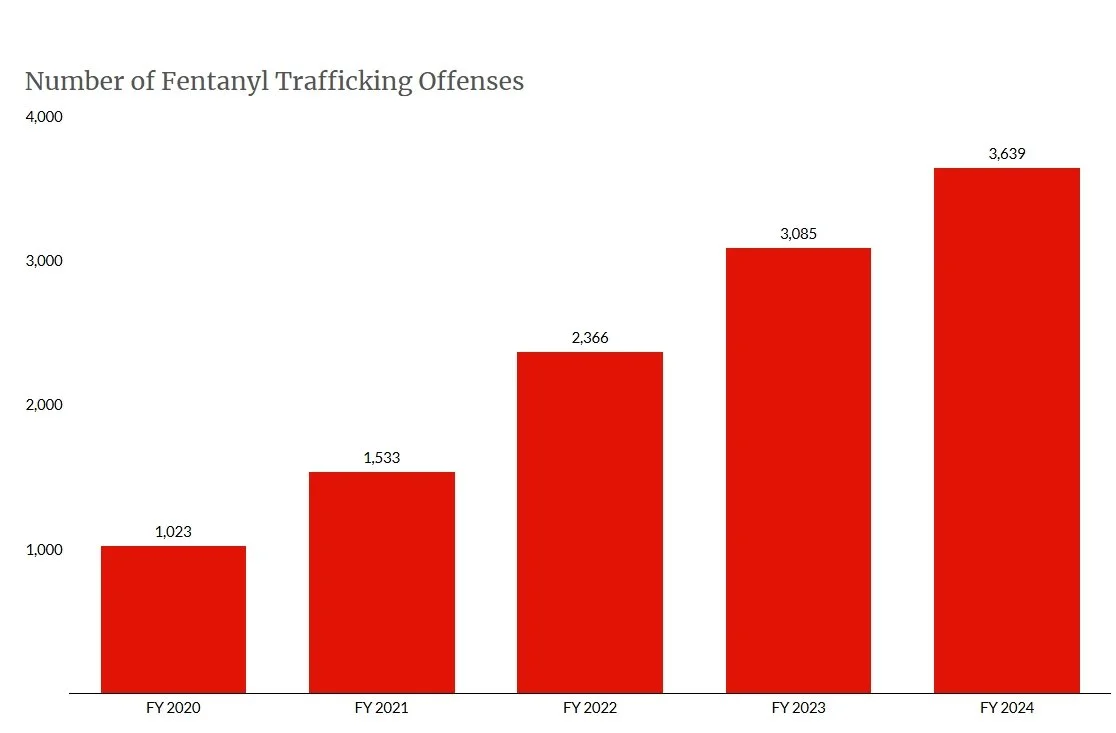The Overdose Crisis and Harsher Laws
A Dangerous Path
We’re living through a brutal overdose epidemic. Every day, dozens of people die in America from drugs we all use or care about — from heroin to pills meant to relieve pain — and most of those deaths now involve fentanyl. Fentanyl is far more powerful than heroin or morphine, and it’s everywhere. It’s hidden in fake pills, cut into cocaine and meth, and mixed into batches of whatever a user thinks they’re buying. Last year well over a hundred thousand Americans died from overdose, nearly 70% of them involving fentanyl. Families in every town are burying their loved ones.
Instead of responding with compassion and treatment, lawmakers are doubling down on punishment. In state after state, politicians are pushing and passing laws so harsh they would shock anyone who’s seen how legal pot or alcohol are handled. Some states now impose life in prison for certain fentanyl crimes. Arkansas, for example, quietly added a law that makes it a crime punishable by life (and a $1 million fine) to sell or package fentanyl in a way “appealing” to kids. Texas passed a law that lets prosecutors treat any dealer as a murderer if someone dies from an overdose — even if the dealer had no idea fentanyl was in the supply. Legislatures across the country are raising minimums, classifying tiny amounts of fentanyl as the most serious felonies, and even calling drug delivery “murder” when an overdose happens.
It might seem like these laws target “big-time traffickers,” but the reality is chilling: they often snare ordinary users. We’ve all heard stories of a friend or family member getting a much longer sentence because fentanyl was found, even when they didn’t know it was there. If your pills or powder turn out to be laced, you can get hit with a murder charge or life term even if you were just using to numb pain or stress — or f you were unwittingly sharing a safe dose with someone. In Wisconsin and other states, 911 Good Samaritan laws may protect you from simple possession charges when you call for help — but there’s no immunity if you’re suddenly charged with homicide for “delivering” fentanyl. This means scared witnesses don’t call for help when someone overdoses, and loved ones try to keep tragedies secret rather than risk prison. Studies of states that treat overdoses like murders have already shown overdose deaths go up, not down, because people get afraid to seek aid.
All this punishment doesn’t make drugs safer or less available. When every drug mixture could carry a life sentence, the illegal market only gets more dangerous and unpredictable. Dealers try to evade law enforcement however they can, so they switch recipes or hide substances in new ways — often making batches that are even more potent or toxic. We saw in the past that prohibition of any kind just makes unregulated sales surge: remember how bathtub gin and moonshine flooded the streets back in alcohol Prohibition? Now we’re facing cocktails laced with tranq, xylazine, and chemicals we barely know. Every time we penalize an adulterant like fentanyl more, the supply gets even dirtier. For instance, in some cities fentanyl test strips are banned as “paraphernalia” — it’s illegal to even carry a simple drug test — so users can’t check their pills at all. This creates a nightmare: the risk of accidentally dosing way too high is enormous, and we can’t even warn our friends what to expect.
Look around the world to see where this path goes. In countries where authorities clamp down hardest, the punishment is outright barbaric. Iran and Saudi Arabia still execute people by the hundreds for drug possession, not just big dealers. Last year Iran put almost five hundred people to death for drug offenses alone, and Saudi Arabia carried out over a hundred executions for drugs. In China and Singapore, they hang people for heroin or methamphetamine. We may think America would never go that far, but we’re already legally a step behind those regimes: they at least require a trial, and sometimes people caught up in those arrests in Iran are political prisoners or minorities who never hurt anyone but end up dying on the gallows. Here in the U.S., the idea that a person could get life in prison for carrying or sharing a few pills is inching us closer to those harsh international drug policies. It’s a slippery slope. If we don’t speak out now, the “justifiable” punishments being debated today could become normalized — turning our justice system into a cruel circus no different from those rigid systems abroad.
Executions for Drug
Offenses Are On the Rise
This image from Harm Reduction International reveals a shocking trend: drug-related executions are now 40% of all executions globally, up from just 6% in 2020. Each year, this percentage has increased. These visuals highlight how governments are focusing on punishment rather than public health, harming people who use drugs.
Images from Harm Reduction International
The truth is, treating drug use as a criminal justice problem has never worked. It doesn’t stop people from using, but it does ruin lives and public safety. We saw the results in the 1980s with crack laws: draconian sentences filled prisons, tore apart communities, yet addiction and overdose only got worse. The same thing happens now. Our friends and neighbors who use drugs are not villains — they’re people in pain, often hurting inside and looking for relief, trying to self-medicate. Just as we allow doctors to prescribe strong painkillers or benzodiazepines when people need them, we should allow a regulated and safe supply of other substances so that people stop dying from unknown cocktails on the street. Alcohol and marijuana are legal and controlled — we know their potency, we regulate their quality, and we treat abuse as a health issue. It’s past time we applied that same logic to everything else. In Portugal, when possession was decriminalized and treatment was expanded, overdose deaths plummeted instead of rising. In Vancouver and Toronto, safe consumption sites and prescription heroin programs have kept thousands alive who would’ve otherwise overdosed. These success stories show a humane approach actually saves lives.
Our community is not asking for bailouts for cartels — we’re asking for basic human rights and health. We need honest health care: access to clean syringes, fentanyl test strips, naloxone to reverse overdoses, and clinics where someone can safely detox or get medication like Suboxone without fear. We need laws that encourage people to seek treatment and follow-up support, not laws that bury us in maximum-security wings. Criminalizing personal behavior—things like having a pain pill or sharing with a friend—only destroys trust between users and the system. It drives people underground, away from help, and into the arms of more dangerous suppliers. When judges give a lifetime behind bars for mistakes or unmet needs, justice is not served — only injustice grows.
To everyone out there who cares about this issue: raise your voice. Tell your legislators that we want evidence-based solutions, not empty promises through punishment. Stand with drug users and harm reduction workers who see these tragedies up close every day. Remind others that a person who overdosed wasn’t a criminal mastermind, but a human being. The alternative to silence is continued suffering. If we stay quiet, we risk waking up in a country where any “dangerous drug” can mean permanent imprisonment — a country not unlike Iran or China in its cruelty.
It doesn’t have to be this way. We can fight the overdose crisis by regulating, not restricting; by healing, not harming. Legalize it, regulate it, fund the help, and watch lives be saved. Because at the end of the day, harm reduction and compassion is the only justice that can truly break the cycle — for all of us.




